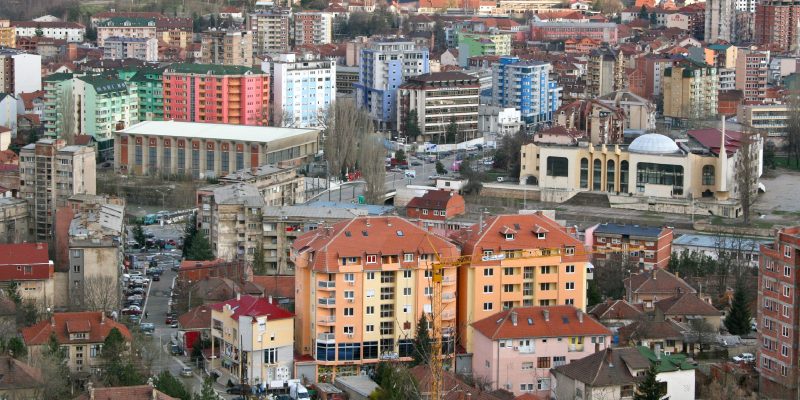Kosovo is one of the newest countries in the world, but with 30 percent of the population living below the poverty line, it’s also one of the poorest countries in Europe. Having gained independence in 2008, it is still in the early stages of developing government institutions that can ensure rule of law and provide effective services for its citizens.

Photo credit: Allan Leonard / CC BY-NC
A photograph captures the northern Kosovo city of Mitrovica. MCC’s new threshold program in Kosovo is designed to lower energy costs for households and businesses and support the Government of Kosovo in its efforts to improve data transparency to spur growth, fight poverty, and advance stability.
This is a critical time for the country: Kosovo is embarking on a process of accession to the European Union and pursuing reforms to improve its rule of law and economic competitiveness. With an average age of 26, it also has the youngest population in Europe. This young, ambitious group is one of the country’s greatest strengths, and the success of these reforms is vital to ensuring that they have a bright future ahead of them.
The broader Balkans region has made strides in overcoming the devastation of the wars of the 1990s and has experienced impressive economic growth over the past decade. Kosovo’s full integration into the Euro-Atlantic community will help strengthen regional security and open up new economic opportunities, including for U.S. businesses in areas such as energy, telecommunications and franchising.
I lead the Kosovo team for the Millennium Challenge Corporation, where our investments are driven by good governance, transparency, and accountability. We’re applying these principles in our new threshold program in Kosovo through a $49 million investment designed to lower energy costs for households and businesses and support the Government of Kosovo in its efforts to improve data transparency and accountability, strengthen rule of law, and reduce corruption — all to spur growth, fight poverty, and advance stability.
The threshold program is MCC’s smaller grant program for countries that don’t yet meet our strict eligibility criteria for larger compact investments, but are undertaking substantial efforts to meet them. Kosovo’s selection for the threshold program reflects its efforts to improve its performance on MCC’s policy scorecard.
Through this program, MCC will empower public institutions and citizens to make data-informed decisions and help foster collaborative relationships among government, civil society, and the private sector. Our investments are focused on two critical barriers to growth: an unreliable supply of electricity and real and perceived weaknesses in rule of law.
We need to increase the availability and use of data to support government decision-making and accountability to the public. The threshold program will establish public access to an electronic case management information system, which will allow users to follow their cases through the courts, shining a light into what has traditionally been an opaque system. It will also make a variety of court data publicly available so it can be analyzed to improve equity and efficiency.
We will also work to give households control over their own energy costs by providing information about energy use and home investments that can help them save on monthly bills — almost one-third of households spend between 20 to 30 percent of their total household income on energy. Lower energy costs mean families can redirect spending to productive uses, such as education or entrepreneurship.
Reducing household energy consumption also frees up energy for industry. Electricity plays a huge role in driving economic growth, and having sufficient reliable and affordable electricity for businesses is critical to their ability to grow and create jobs.
In Kosovo, and in each partner country, we support the implementation of policy and institutional reforms that empower our partner governments to better serve their people. We look forward to embarking on this exciting new partnership with Kosovo as it continues to build transparent institutions and the pillars of a modern economy that contribute to peace and prosperity in the region.
This article originally appeared on Devex’s website.

